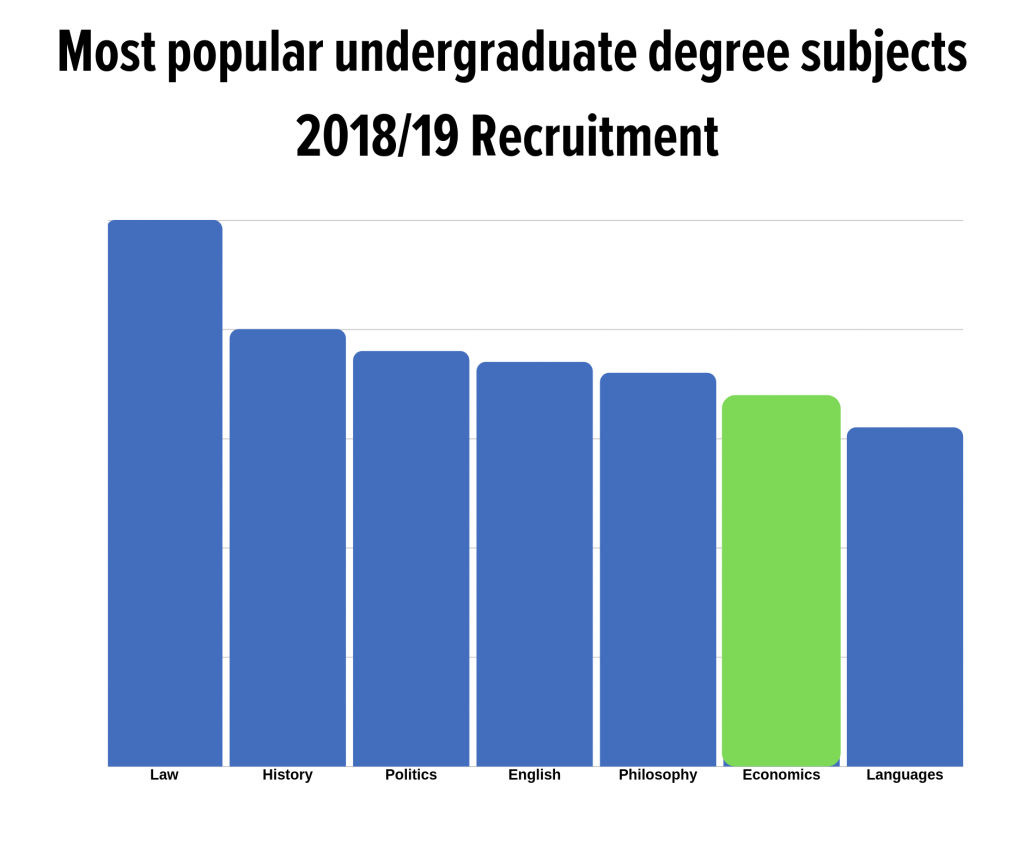Information hub
All the latest views and news here
Studying economics? A career in law might be for you.
When I started studying Economics at university, I immediately jumped on the bandwagon and joined the rest of my classmates pursuing careers in financial services. Only in my final year did I realise the plethora of skills that make Economics students attractive in the legal industry.
In fact, at Shearman & Sterling, economics is one of the most popular degree subjects applicants study.

Here are 5 of the most relevant skills you will develop studying economics.
1. Get to the point!
As a lawyer, you are faced with complex legal problems. When writing to a client you must draft a substantive response using language that is understandable to anyone, not just lawyers. For example, I recently had to draft a short note explaining the facts of a complex and historic arbitration award such that the key points were clear and obvious to a layman.
Economics essays are not about flamboyant language. They’re about using economic theories, data and facts to formulate a narrative that supports your idea or hypothesis, in a similar way to how you present a legal argument. You have to get to the point and make sure the person you are communicating with understands your analysis by writing clearly.
Hence, as an Economics student, you are already well underway to developing a concise writing style – more so than the linguistically nourished stereotypical law firm recruits in the English and History departments.
2. Teamwork and presentation skills
My experience of Economics is that it can be a very collaborative degree. You need to work in groups to solve problems in preparation for seminars.
In addition, I had to do multiple presentations throughout my degree, working in small teams to analyse data and present our findings. This is all great preparation for life in a law firm. You are often working with others, especially when faced with a tight deadline.
I have been tasked with preparing many presentations for senior lawyers, as well as being asked to give several talks about life as a trainee.
My Economics degree has certainly stood me in good stead for whenever presentation skills have been required of me. Additionally, trainees are always on the phone, whether speaking to local counsel or communicating with clients. The ability to speak confidently is an incredibly useful skill to develop during your Economics degree.

3. Analytical and logical thinking
Another important facet of law is critical thinking. An Economics degree exposes you to a great deal of logical thinking, as well as interpreting and analysing complex data. Studying Economics develops analytical skills in ways that will be helpful as a lawyer. It provides a unique lens through which all aspects of human behaviour may be viewed.
As much as there are many complicated economic theories that you have to get your head around, you are always encouraged to apply these theories to real-world events. This is exactly what lawyers do on a daily basis.
Economics demands that you consider the implications of minute changes in a marketplace. A change in the environment, for example, could radically affect the supply and demand for certain products. Being able to discern the big impacts of very small changes encourages attention to detail – a key trait in any lawyer.
4. Money Matters
A lot of people think Economics is just the study of money. Whilst this idea is entirely false, studying modules like corporate finance and accounting do give you an advantage over your law-school peers as you will develop a deep understanding of key financial instruments, allowing you to better grasp the legal concepts surrounding debt, equities and derivatives.
These modules also make you very comfortable dealing with numbers; a skill that is not common within the legal industry. Fundamentally, law firms are businesses. As a trainee I have often been asked to help out on business development matters (such as preparing pitches and proposals) for which my Economics background was beneficial, for example when learning about key law firm metrics and understanding how proposed fees are calculated.
I have also been surprised at the frequency of the use of Excel during my training contract so far. Having used Excel heavily during my dissertation, being proficient using the programme has certainly helped me complete this type of work efficiently.
5. Macro – Micro
In your Economics degree you will undoubtedly focus on Microeconomics and Macroeconomics, both of which provide useful backgrounds for a career in corporate law.
As a lawyer you need to be able to look down a lens to see the rationale behind business decisions, whilst also having an appreciation of the big picture and where the specific deal that you are working on fits in to the client’s broader global strategy.
Businesses use microeconomic principles to make decisions regarding issues such as productivity, supply and pricing. Studying Microeconomics therefore teaches you the logic behind these decisions. Taking modules like industrial or competition economics would also provide useful knowledge for a corporate lawyer, such as understanding how markets are defined in Antitrust cases.
Overall, having an appreciation of the logic behind clients’ day-to-day business decisions will allow you to provide them with more tailored advice and practical solutions.
Law firms work with global clients whose operations will be affected by macroeconomic events. Having a background in Macroeconomics will allow you to anticipate and understand clients’ decisions whenever you hear about a macroeconomic event in the news. You will also have the communication skills to be able to speak with clients confidently about such global events that are shaping the industries that they operate in.
Summary
Economics is at the heart of the business world. An Economics degree is a very varied degree that requires you to develop a multitude of skills, which are invaluable, particularly at a corporate law firm like Shearman & Sterling.
In addition, it will be very straight forward to demonstrate key law firm buzzwords like “commercial awareness” as you should develop this as part of your degree.
So, if you are currently studying Economics, don’t follow the crowd and join an investment bank; you might be more suited to a career in law.
by Tom Capper, Trainee


